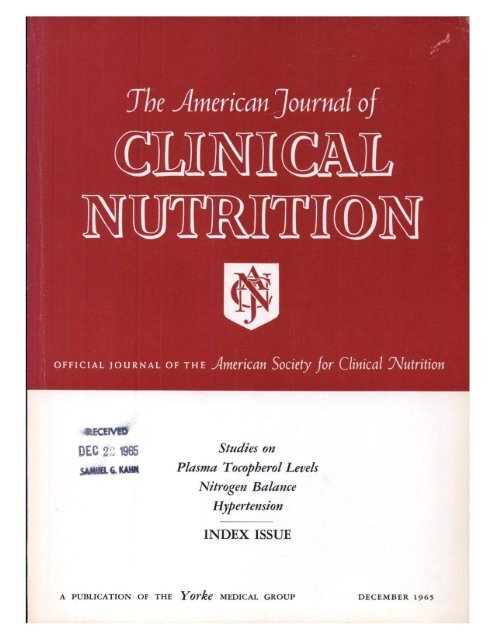母乳喂养与孕产妇和儿童健康结果的关系:总括审查。
IF 6.9
1区 医学
Q1 NUTRITION & DIETETICS
引用次数: 0
摘要
背景:据报道,母乳喂养(BF)对母亲和子女都有益,但这些关联的证据尚未得到系统评估。目的:本综述旨在评估关于BF与母亲和后代健康结局之间关联的现有证据的可信度。方法:对于每个健康结局,采用再分析随机效应估计、研究间异质性、95%预测区间、发表偏倚、小研究效应和过度显著性偏倚来确定证据水平。方法质量采用评估系统评价的测量工具2 (AMSTAR 2)进行评估,证据可信度采用推荐、评估、发展和评价分级(GRADE)进行分级。结果:总共纳入了来自62篇文章的192项meta分析。在产妇结局中,三项荟萃分析(3/65,4.6%)被认为提供了令人信服的证据,表明BF降低了卵巢癌(比值比[OR]范围:0.70-0.78)和高血压(OR范围:0.89-0.93)的风险。对于后代的短期结局,5项荟萃分析(5/114,4.4%)被认为提供了令人信服的证据,证明纯母乳喂养(EBF)或曾经的BF与婴儿猝死综合征(SIDS)的低风险相关(or: 0.63;95%可信区间[CI]: 0.54, 0.73)和变应性鼻炎(OR: 0.61;95% CI: 0.54, 0.70),以及身体素质的提高(立定跳远,标准化平均差异[SMDs]: 0.20-0.27)。结论:我们的研究结果支持了BF对母亲及其后代的益处,强调了促进BF实践对改善孕产妇和儿童健康结果的重要性。注册Url: PROSPERO CRD42023447328。该试验在普洛斯彼罗注册为CRD42023447328。(https://www.crd.york.ac.uk/prospero/display_record.php?ID=CRD42023447328)。本文章由计算机程序翻译,如有差异,请以英文原文为准。
Associations of breastfeeding with maternal and child health outcomes: umbrella review
Background
Breastfeeding (BF) has been reported to be beneficial for both mothers and their offspring, but the evidence for these associations has not been systematically evaluated.
Objectives
This umbrella review aims to assess the credibility of existing evidence regarding the associations between BF and health outcomes in mothers and offspring.
Methods
For each health outcome, evidence levels were determined using reanalyzed random-effects estimates, between-study heterogeneity, 95% predictive intervals, publication bias, small-study effects, and excess significance bias. Methodological quality was assessed by A Measurement Tool to Assess Systematic Reviews 2, and evidence credibility was graded with the Grading of Recommendations, Assessment, Development, and Evaluation (GRADE).
Results
Overall, 192 meta-analyses from 62 articles were included. Among maternal outcomes, 3 meta-analyses (3/65, 4.6%) were considered to provide convincing evidence that BF reduced risks of ovarian cancer [odds ratio (OR) range: 0.70–0.78] and hypertension (OR range: 0.89–0.93). For short-term offspring outcomes, 5 meta-analyses (5/114, 4.4%) were considered to provide convincing evidence that exclusive BF or ever BF was associated with lower risks of sudden infant death syndrome [OR: 0.63; 95% confidence interval (CI): 0.54, 0.73] and allergic rhinitis (OR: 0.61; 95% CI: 0.54, 0.70), alongside improved physical fitness (standing long jump, standardized mean differences: 0.20–0.27). Early BF initiation (<1 h after birth) reduced neonatal mortality risk by 56% (OR: 0.44; 95% CI: 0.33, 0.61). Regarding long-term offspring outcomes, 2 meta-analyses (2/13, 15.4%) were considered to offer highly suggestive and suggestive evidence, respectively, suggesting the inverse associations of ever BF on overweight/obesity and type 2 diabetes mellitus in adulthood. After GRADE credibility assessment, only 4 of 192 meta-analyses were classified as moderate-quality evidence.
Conclusions
Our findings support the benefits of BF for mothers and their offspring, underscoring the importance of promoting BF practices to improve maternal and child health outcomes.
This trial was registered at PROSPERO as CRD42023447328 (https://www.crd.york.ac.uk/prospero/display_record.php?ID=CRD42023447328).
求助全文
通过发布文献求助,成功后即可免费获取论文全文。
去求助
来源期刊
CiteScore
12.40
自引率
4.20%
发文量
332
审稿时长
38 days
期刊介绍:
American Journal of Clinical Nutrition is recognized as the most highly rated peer-reviewed, primary research journal in nutrition and dietetics.It focuses on publishing the latest research on various topics in nutrition, including but not limited to obesity, vitamins and minerals, nutrition and disease, and energy metabolism.
Purpose:
The purpose of AJCN is to:
Publish original research studies relevant to human and clinical nutrition.
Consider well-controlled clinical studies describing scientific mechanisms, efficacy, and safety of dietary interventions in the context of disease prevention or health benefits.
Encourage public health and epidemiologic studies relevant to human nutrition.
Promote innovative investigations of nutritional questions employing epigenetic, genomic, proteomic, and metabolomic approaches.
Include solicited editorials, book reviews, solicited or unsolicited review articles, invited controversy position papers, and letters to the Editor related to prior AJCN articles.
Peer Review Process:
All submitted material with scientific content undergoes peer review by the Editors or their designees before acceptance for publication.

 求助内容:
求助内容: 应助结果提醒方式:
应助结果提醒方式:


